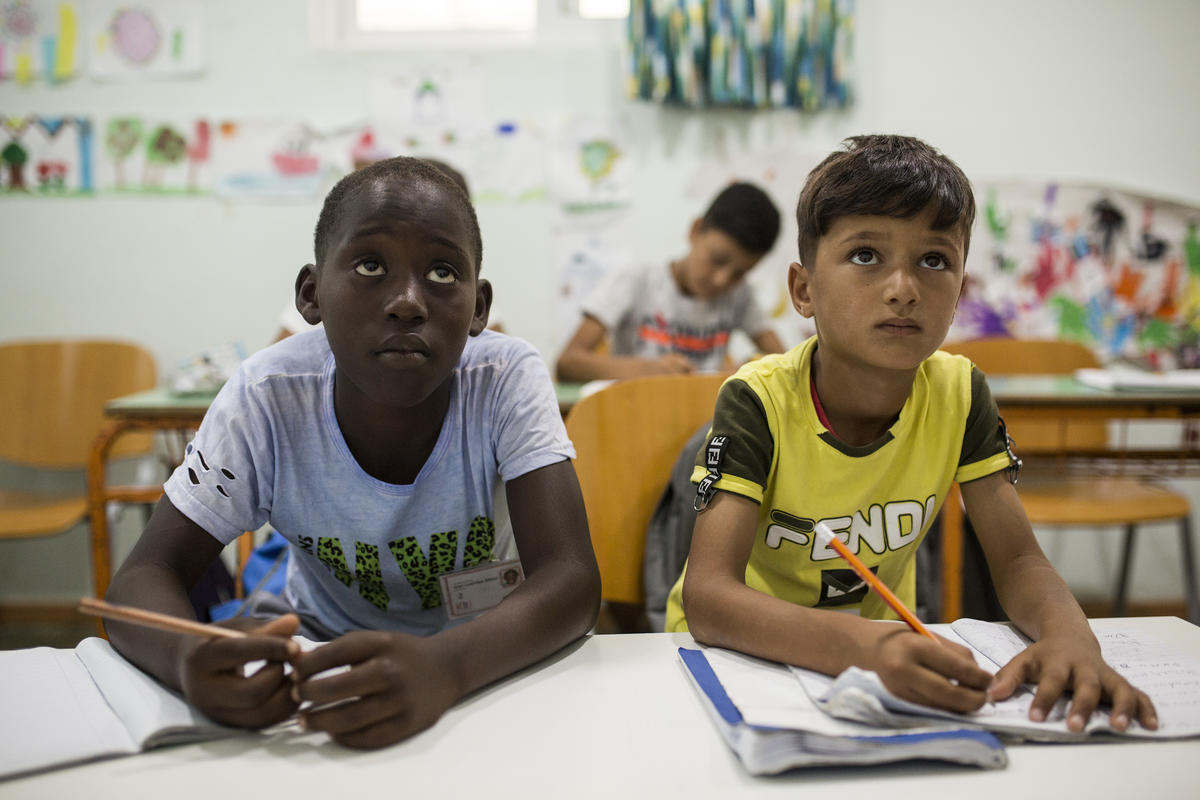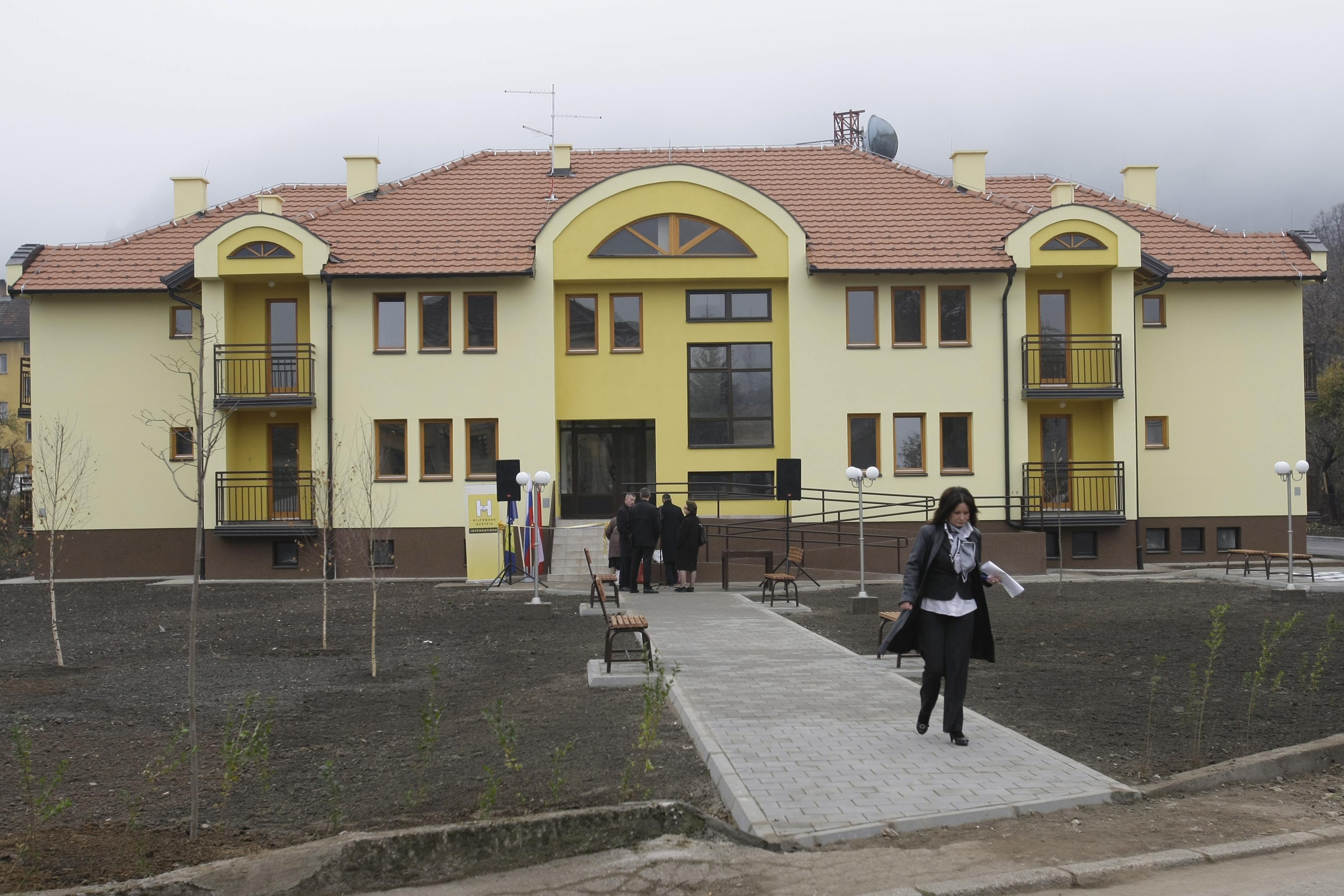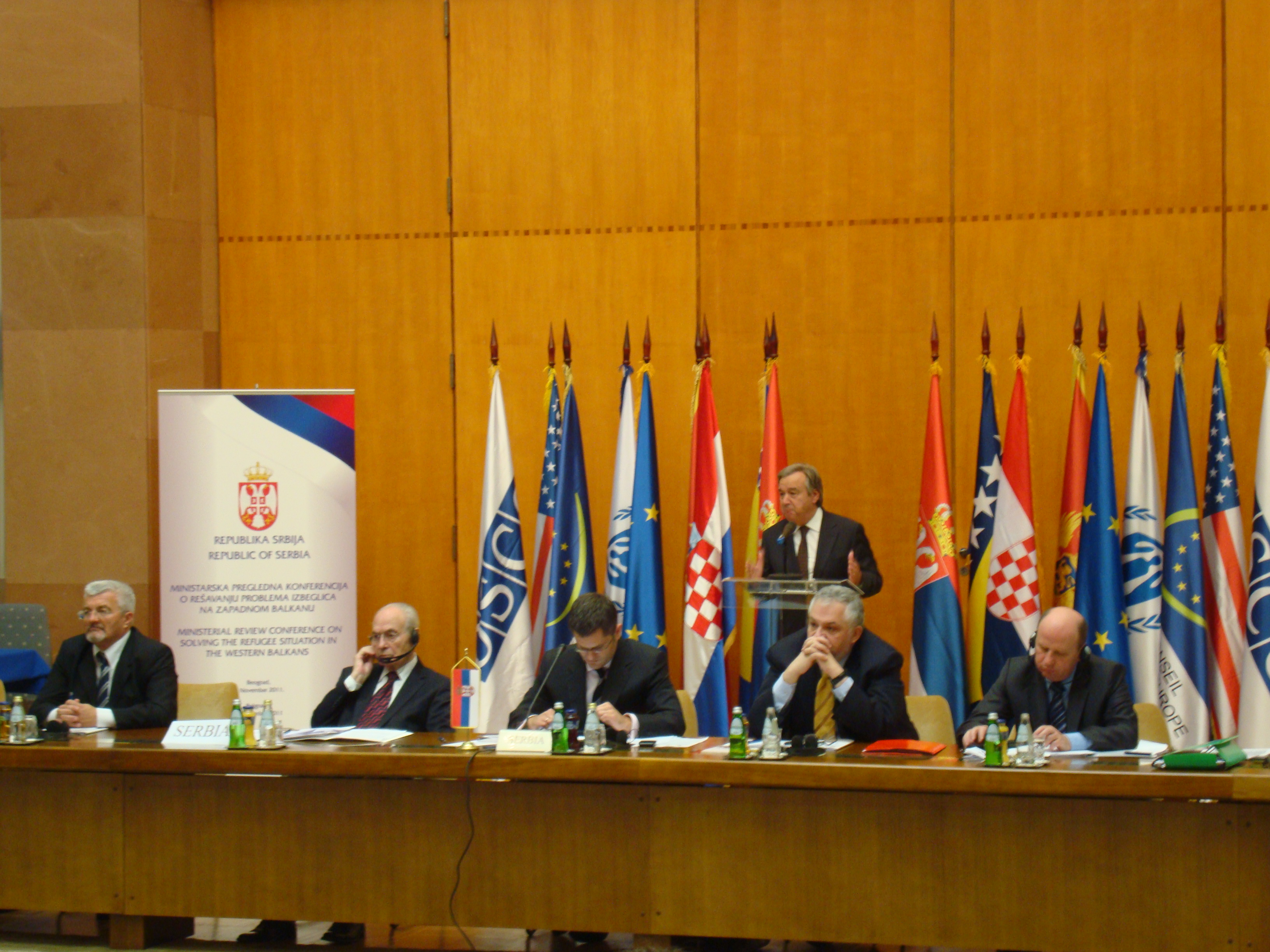Step by step, Kosovo refugee rebuilds life in Montenegro
Step by step, Kosovo refugee rebuilds life in Montenegro

CAMP KONIK, Montenegro, July 23 (UNHCR) - Tefik Berisa is a difficult man to reach. Calls to his home are often answered by a polite childish voice: "My father is not available, he is at work."
In person, his face reflects the hard life he's been through but his posture reveals a man who believes dignity is built through hard work. In 1999 he and his family fled Kosovo for Montenegro with little more than the clothes on their backs. Their belongings and documents were left behind.
"We had nothing when we came to Montenegro. Luckily, food was generously provided in the camp, but I did not want my family to depend on aid. I wanted a life of dignity for my family, although we had nothing," said Tefik. "Lacking civil documentation made me feel as if my family does not exist. I quickly recollected myself and decided to take it step by step: first food, then the documentation."
He started working to support the family, which has grown from three to eight people since they arrived. Work was usually hard, physical labour.
"On a regular basis, I trim grass in the neighbourhood and collect plastic bottles and scrap metal. Sometimes I have 50 cents to give to my children, sometimes I don't. It depends. Such is life," said Tefik.
For the last 15 years, his family has been living in a container settlement in Konik, Podgorica, the country's largest Roma refugee settlement currently hosting some 1,500 people. The Berisas have made their container a home. Despite its sparseness, the space has a certain allure and the interiors form a harmonious unison of colour and space. As they talk, the family sits on a comfortable, carpeted floor.
Explaining his documentation problem, Tefik said, "I understood well that not having personal documents would make my family's life more complicated, so I immediately sought ways to obtain them. However, given that I had a lot of mouths to feed, it was next to impossible for me to finance both the travel back to Kosovo and the taxes for the documentation. I worked even harder, but I was still far from being able to achieve this."
In general, not having civil documentation poses a major obstacle for refugees, who cannot build a stable life without being legally recognized by the host country. In 2009, in order to support the local integration of refugees from the former Yugoslavia, the Government of Montenegro made it possible for displaced people to apply for the status of foreigner with permanent or temporary residence, under privileged conditions.
International and humanitarian organizations have been instrumental in helping the displaced people obtain personal documentation. UNHCR and a Montenegrin NGO, Legal Center, organized bus visits to Kosovo, which enabled Berisa and his wife to obtain the documentation and apply for foreigner status.
In general, UNHCR has worked to ensure durable solutions for the displaced people from Kosovo, be it through voluntary return to their homeland or integration in the host countries. These efforts were especially aimed at helping vulnerable minorities, including Roma, Ashkali and Egyptians, particularly those living in informal settlements and those without civil documentation.
Governments in the region have been engaging in bilateral projects to help the refugees in innovative ways. In May this year, the Ministry of Internal Affairs of Kosovo (UNSC 1244) sent four mobile teams to Montenegro to collect applications for personal documents. Among some 400 refugees, the mobile teams helped Tefik fulfill his dream of permanent residence in Montenegro. His children now have passports of their own, which will enable them apply for the status of foreigners with permanent residence.
"Now I can plan their future properly. All of them are going to school, so that they can find better jobs in the future. This is my greatest wish. I do not want them to do the kind of hard work I do," said Tefik. "There is only one more thing to do on my step-by-step list: A proper roof over our heads. I think this is crucial for building safe future for the family."
The Berisa family is expected to benefit from housing assistance under the Regional Housing Programme, which aims to bring the region's displacement issue to a close by providing housing for refugees, returnees and internally displaced people in Bosnia and Herzegovina, Croatia, Montenegro and Serbia.
International donors have pledged to support the regional programme with 260 million euros, including 230 million euros from the European Union. Montenegro is planning projects with a value of 27 million euros benefitting over 6,000 most vulnerable refugees in the country. This includes the construction of 120 housing units for residents of Konik camp that is due to begin in the second half of next year.
By Mensur Bajramspahic in Camp Konik, Podgorica, Montenegro







